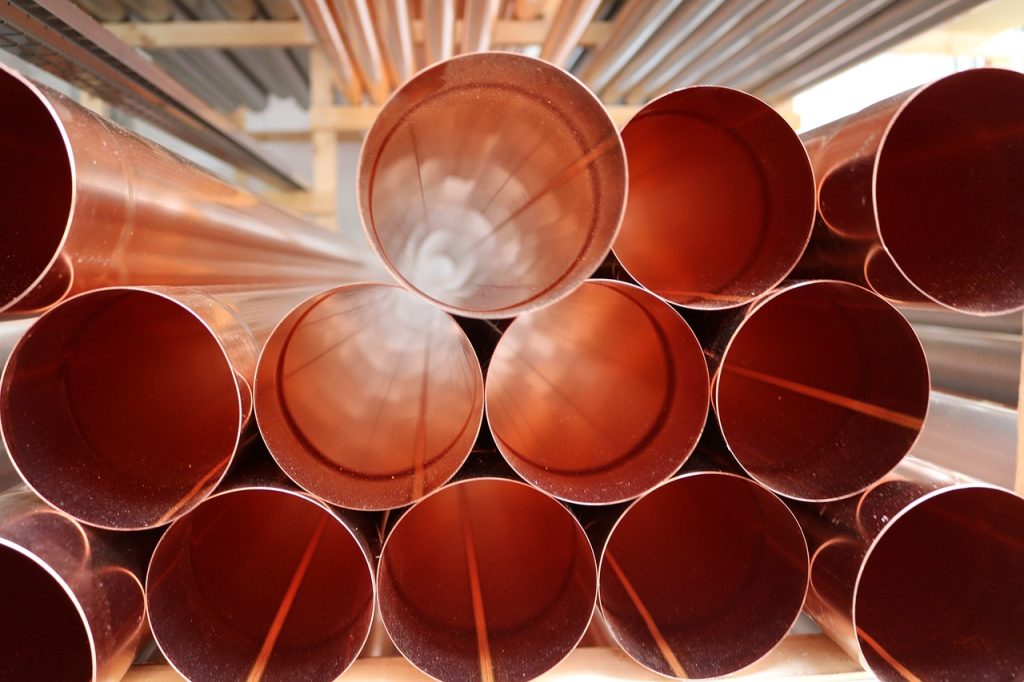Boost Your Craftsmanship with High-Performance Copper Products for Artisans
Exploring the Diverse Applications of Copper Products in Modern Industries
Copper products have actually developed themselves as essential parts across a myriad of contemporary industries, largely because of their impressive conductivity, pliability, and resistance to rust. From enhancing the efficiency of electrical systems to playing a vital function in renewable power modern technologies, the flexibility of copper is noticeable. Its recyclability placements it as a sustainable choice in production and electronic devices. As industries significantly prioritize technology and sustainability, the diverse applications of copper warrant a closer exam, especially concerning their prospective influence on future technical advancements and ecological methods.
Electrical Applications of Copper
Copper is a necessary material in the electrical sector, making up about 60% of the total demand for non-ferrous metals globally - Copper Products. Its remarkable electrical conductivity, which is almost two times that of aluminum, makes it the recommended choice for a wide variety of electrical applications. From wiring systems in business and residential buildings to high-voltage power transmission lines, copper makes sure efficiency and reliability in electrical power shipment
Along with circuitry, copper is indispensable to the production of electric parts such as motors, generators, and transformers. These parts utilize copper's thermal conductivity and pliability, necessary for warm dissipation and reliable efficiency. In addition, copper's resistance to deterioration improves the life expectancy and sturdiness of electrical systems, making it a cost-efficient remedy in the lengthy term.
The growth of renewable resource sources, such as solar and wind power, has additionally raised the demand for copper in electric applications. As industries transition in the direction of sustainable power remedies, copper's role ends up being even a lot more vital. Overall, the adaptability and performance characteristics of copper strengthen its status as a foundation product within the electric field, driving development and performance across numerous applications.
Plumbing and Piping Solutions
In contemporary pipes systems, the selection of materials substantially impacts both functionality and durability. Copper has actually emerged as a favored alternative due to its unique residential or commercial properties, consisting of deterioration resistance and antimicrobial qualities. These qualities make certain that copper piping continues to be risk-free and sturdy for transferring drinkable water, a crucial factor to consider in household and commercial applications.
One of the essential advantages of copper in plumbing is its ability to endure heats and stress, making it appropriate for a range of applications, from warm water systems to home heating and cooling down networks. Additionally, copper's adaptability permits for easier installment in complicated piping layouts, lowering the threat of failings and leaks.
Another noteworthy benefit is copper's long life-span, usually going beyond 50 years with correct maintenance. This longevity not just lessens substitute prices but also adds to sustainable techniques by lowering waste. Additionally, copper's recyclability lines up with contemporary environmental criteria, promoting a circular economy within the pipes sector.
Copper in Renewable Energy
The adaptability of copper prolongs past pipes applications, playing an important role in the eco-friendly energy sector. In solar panels, copper is made use of in photovoltaic or pv discover this cells and circuitry, facilitating reliable power conversion and transmission.

Furthermore, as the international need for electric automobiles (EVs) boosts, copper's function in battery systems and billing facilities ends up being a lot more substantial. The material's capability to perform electricity efficiently is indispensable to the efficiency of EV batteries, enhancing range and billing rate.
Copper's Duty in Electronics
Electronics producing relies greatly on copper's exceptional properties, specifically its high electrical conductivity and thermal efficiency. These attributes make copper a suitable selection for a variety of electronic parts, consisting of ports, motherboard, and wiring. The steel's capacity to important link efficiently send electric signals guarantees very little energy loss, which is crucial in high-performance digital tools.
In addition, copper's thermal conductivity plays a substantial duty in warm dissipation, shielding delicate components from overheating. This is specifically essential in modern electronics, where compact layouts lead to boosted warmth generation. Copper is additionally favored for its malleability and ductility, enabling it to be easily formed right into complex styles that fulfill the needs of innovative digital applications.
With the increase of consumer electronics, telecommunications, and electrical cars, the demand for copper in the electronic devices industry continues to grow. Hence, copper stays a cornerstone material in the ever-expanding area of electronic devices.
Ingenious Utilizes in Production

One remarkable application is in additive manufacturing, where copper-based products are used in 3D printing processes. This permits the production of light-weight elements and complex geometries, specifically in the aerospace and auto industries. Furthermore, copper's thermal conductivity makes it an ideal selection for heat exchangers, enhancing effectiveness in commercial cooling systems.
Additionally, the increase of wise manufacturing has seen the unification of copper in IoT devices, where its conductive capacities sustain advanced sensing modern technologies. In the realm of renewable resource, copper is crucial in the manufacturing of Related Site photovoltaic panels and wind generators, promoting a lot more reliable energy conversion and distribution.
As markets pursue sustainability and innovation, copper's flexibility and efficiency proceed to place it as a vital material, driving improvements in manufacturing and adding to the development of smarter, a lot more efficient items.
Conclusion
The important function of copper in renewable energy and its vital function in electronics highlight its significance in progressing lasting techniques. Jointly, these applications show copper's important payment to technical development and industrial efficiency in contemporary culture.
From enhancing the effectiveness of electrical systems to playing an essential duty in eco-friendly energy innovations, the versatility of copper is evident. As sectors significantly focus on technology and sustainability, the diverse applications of copper require a closer assessment, specifically concerning their prospective influence on future technical developments and ecological practices.
The development of renewable energy sources, such as solar and wind power, has actually better raised the demand for copper in electrical applications. Generally, the adaptability and efficiency characteristics of copper solidify its standing as a foundation material within the electric sector, driving advancement and efficiency across various applications.
The versatility of copper expands past pipes applications, playing a vital function in the eco-friendly power sector.